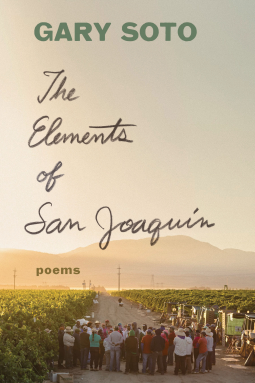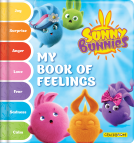
The Elements of San Joaquin
poems (Chicano Poetry, Poems from Prison, Poetry Book)
by Gary Soto
This title was previously available on NetGalley and is now archived.
Send NetGalley books directly to your Kindle or Kindle app
1
To read on a Kindle or Kindle app, please add kindle@netgalley.com as an approved email address to receive files in your Amazon account. Click here for step-by-step instructions.
2
Also find your Kindle email address within your Amazon account, and enter it here.
Pub Date Apr 03 2018 | Archive Date Apr 02 2018
Talking about this book? Use #TheElementsOfSanJoaquin #NetGalley. More hashtag tips!
Description
Advance Praise
“A response to the charged, ideologically defiant voices from the seventies, The Elements of San Joaquin forever changed the course of Latino literature, redirecting us toward the mundane and ephemeral. The poet's only commitment, Gary Soto seemed to suggest, is to life itself. His teacher and role model was Philip Levine, who encouraged him to see his own neighborhood, indeed his own backyard, as a kingdom. The result was a type of poetry that weathered inclement times in ways that scores of other instant ‘hits’ couldn’t. It was new yet as old as the Bible and it still is. The word ‘classic’ is overused these days. Not in this case.”
-Ilan Stavans, Lewis-Sebring Professor in the Humanities, Latin American and Latino Culture at Amherst College, and general editor of The Norton Anthology of Latino Literature
“In the original The Elements of San Joaquin, Gary Soto defined the Chicano character as an underrepresented part of the American whole, the identity that would serve as foundation for my life’s work. My parents and grandparents had crossed borders, but Soto rooted me, us, here-in the daily poverty of mejicano vecindades-on all those rural ‘Braly Streets’ of Fresno, Brawley, and Salinas. His elements of sun, wind, stars, and field shadowed my own destiny to bring justice there, to the people of the hoe and harvest.”
-José Padilla, Executive Director of California Rural Legal Assistance
Available Editions
| EDITION | Other Format |
| ISBN | 9781452170138 |
| PRICE | $14.95 (USD) |
Links
Average rating from 5 members
Readers who liked this book also liked:
Carine Laforest;
Children's Fiction






